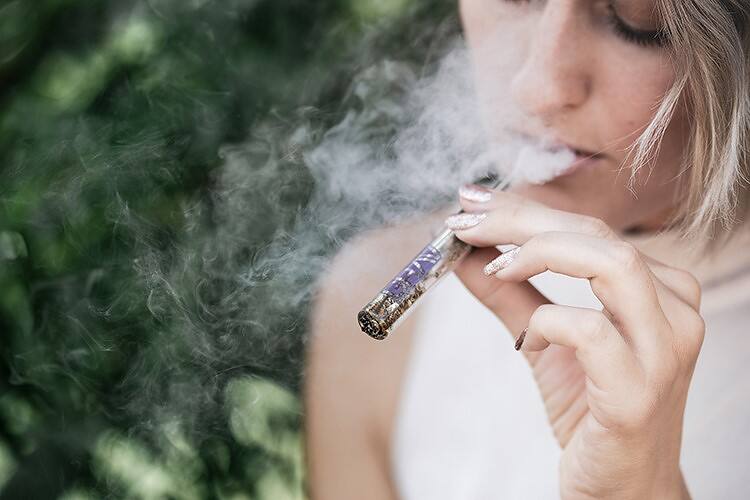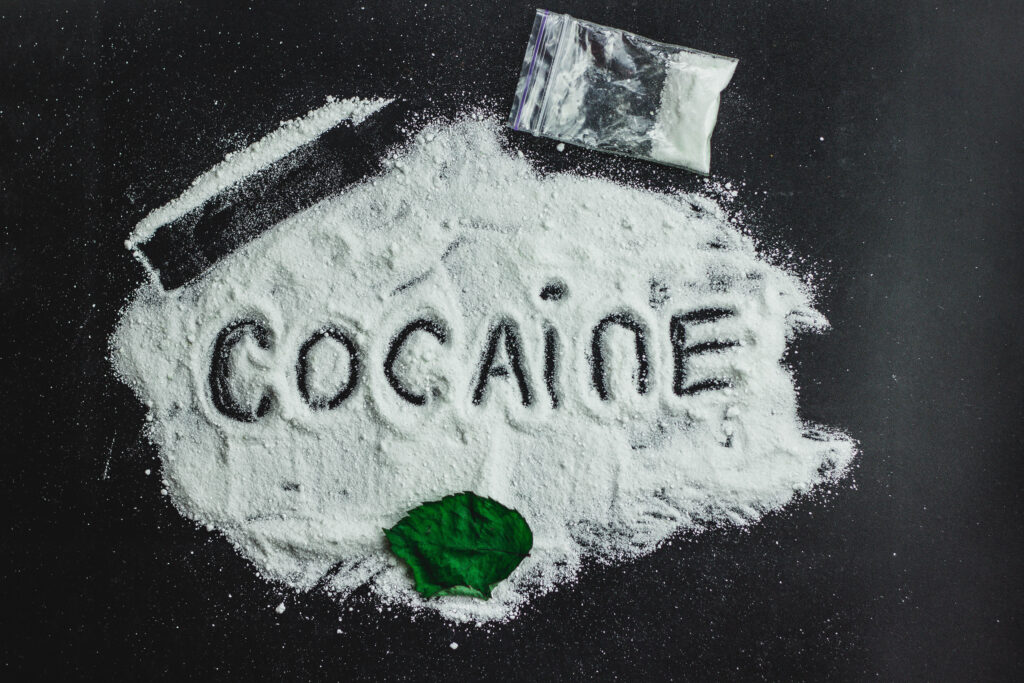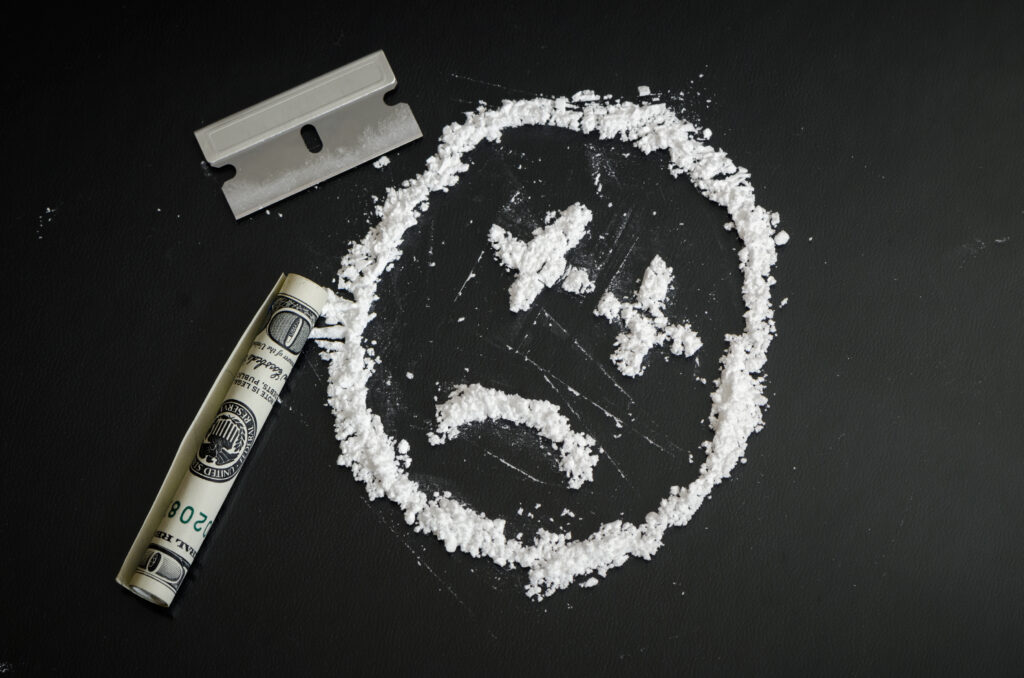Cocaine is a powerful stimulant and incredibly addictive, both physically and mentally. Made from the coca plant leaves, it goes by many ‘street’ names, including coke, blow, snow, crack and rocks. However, it is an illegal street drug used by healthcare professionals for medical purposes such as anaesthesia and pain management in surgery with controlled dosage.

What is Cocaine?
The illegal street version of cocaine varies in strength and potency because it is mixed with other agents and drugs to bulk out the product and increase profit for dealers. Cocaine in powder form resembles flour or talcum powder and is a fine, crystal-like powder. With prolonged use of cocaine, the effects or ‘high’ are reduced, so higher doses are required to achieve the same effect. This causes your brain to become rewired, making it more dependent on the drug even after stopping usage.
Why is Your Brain Affected by Cocaine?
Your brain is affected by cocaine usage because cocaine increases the dopamine levels in your brain. Dopamine, the brain’s messenger or neurotransmitter, controls how your brain receptors interpret pleasure. Moreover, it affects your brain’s reward sensors, causing a dependency on your brain for managing pleasurable feelings.
So, with stimulated and fluctuating dopamine levels causing chemical imbalances in your brain, cocaine abuse causes real psychological damage. Particularly:
The Dopamine Effect: Your brain controls the release of the chemical dopamine in your brain’s reward circuitry when preparing for potential rewards. This motivates and encourages you to complete a task or work towards a goal. Dopamine also provides pleasurable feelings when participating in events that are important to you or you enjoy, like going on a date or the birth of a child. Dopamine makes you feel good doing the things that are satisfying and rewarding to you.
The Dopamine Cycle: Dopamine is a naturally occurring brain chemical that, once released, is then recycled back into the brain. This process shuts off the brain signal, and the effect of dopamine wears off with time. This is a natural process; therefore, you cannot have dopamine being released constantly in your brain without it affecting your brain.
Cocaine and Dopamine: Cocaine activates and stimulates the brain cells that release dopamine, increasing your brain’s dopamine supply. Cocaine also stops the natural dissipation of dopamine while experiencing a cocaine high. So the simple act of snorting cocaine provides a feeling of satisfaction and fulfilment as your brain falsely, through stimulation, experiences reward and pleasure.
Break the Cycle & Halt the Dopamine Flood: Cocaine increases dopamine levels in the brain by maintaining desensitisation and halting the natural dissipation or dispersal of dopamine in the brain. The brain then becomes flooded with dopamine as it does not dissipate, resulting in a dopamine overload in the brain nerves. As the effects of the cocaine fade, your brain craves the sensation.
The Dopamine Deluge: This flooding of dopamine causes disruption in the normal function of the brain and how the brain’s reward mechanism works. The ‘false’ pleasure, however brief, causes a reduction in the brain’s motivation for real reward.
Using cocaine causes your brain activity to change in the way that your brain communicates with your body. Feelings of pleasure, satisfaction and achievement are falsely provided by cocaine, making cocaine the mental replacement for true success and achievement.
Methods of Cocaine Usage

Due to the short-lived effects of cocaine, cocaine usage is taken in ‘binges’, where the drug is consumed repeatedly, in a short time frame and ever-increasing dosages. This happens because the effects of cocaine weaken and reduce over time and with prolonged usage.
Cocaine can be consumed and introduced into the body and brain in many different ways, including:
- Snorting Inhalation – taken by snorting up a nostril from a line of cocaine using a straw, typically a rolled-up paper banknote.
- Rubbed into Gums – dissolved through the gum membrane via saliva.
- It is dissolved then Injected – dissolved in water then injected into the bloodstream.
- Speedball Injection – cocaine, when combined with heroin, is injected into the bloodstream with a more potent and stimulating high with the potential for overdosing.
- Smoking by Crack Inhalation – Cocaine is processed into a rock crystal and consumed via a ‘crack pipe’ known as crack and freebasing. Crack because of the drug’s crackling sound when heated in the pipe, creating inhaled vapours.
Cocaine Abuse Affects Your Mental & Bodily Functions

Recreational cocaine usage is dissimilar to alcohol consumption in that it is not taken responsibly or moderately, and due to its illegal and unregulated nature, people tend to abuse cocaine seeking the initial high. This over-consumption and usage leave the brain and body at risk of neurological damage that can affect your quality of life. Cocaine usage is categorically connected to the following:
- Loss of Behaviour Control: Cocaine usage over an extended period causes an altered mental state, leading to a lack of control over your behaviour, including impulses, patience and emotional maturity.
- Loss of Movement Control: Cocaine works at a neurological level, affecting your body’s movement with involuntary shaking and twitches, including your ability to walk, sit and stand properly.
- Loss of Stimulation: Cocaine desensitises your brain to normal stimuli, leaving you bored and unresponsive to regular stimulation from experiences.
- Inability to Perform Daily Activities: Cocaine affects your brain and body, altering everyday daily routines like getting up from bed, brushing your teeth, eating at a dining table or performing other rudimentary tasks
- Inability to Make Decisions: Cocaine affects your attention span, sense of cognition and decision-making abilities, especially for long-term cocaine abuse.
In summary, your sleeping pattern, attention span, perception of reality, frame of mind, emotional balance, indulgences, memory and other cognitive abilities will become impaired with cocaine usage.
Distinct Adverse Effects of Cocaine Abuse on the Brain
Cocaine abuse causes changes to the chemistry of the brain, directly affecting your behaviour and causing psychological withdrawal symptoms if not taken. These alterations are related to the cocaine users’ increased requirement to consume more cocaine each time they use, leading to addiction quickly and the desensitisation effect.
Cocaine-altered brain chemistry can cause behavioural abnormalities, including unusual and erratic behaviour. Cocaine addiction can make you behave erratically, causing issues with others, including family and friends.
Spotting the Signs of Cocaine Withdrawal
Cocaine withdrawal symptoms are less intense than the withdrawal symptoms of drugs like alcohol and heroin; however, cocaine withdrawal presents its own set of issues to overcome for a successful recovery.

Withdrawal from alcohol addiction, for example, may involve extreme physical symptoms in the body that can be life-threatening. In contrast, cocaine detoxification concerns the psychological withdrawal effects and symptoms to look out for include:
- Physical symptoms like chills, tremors, nerve pain and body aches
- Restlessness, exhaustion, slowed activity and fatigue
- Slow thinking and difficulty concentrating
- Depression, anxiety, suicidal thoughts or actions
- Inability to feel pleasure, including sexual arousal
- Increased appetite
- Increased craving for cocaine
When is Cocaine Medical Detox Required?
This depends on the individual circumstances of the user’s addiction. Cocaine detox can be performed through outpatient therapy; however, residential medical cocaine detox is required in certain instances. This is especially the case if the person in recovery has relapsed during any prior attempt at recovery and 24-hour medical supervision is required.
This type of detox is recommended for cocaine withdrawal to ensure patient safety, specifically if:
- Co-occurring Mental Conditions Exist: If the user has various co-occurring mental conditions, that is, someone with a substance use disorder and mental health disorders, then any medical detoxification should intentionally be followed by a comprehensive inpatient addiction rehabilitation treatment.
- Increased Suicide Risk: Increased suicidal thoughts or actions are one of the most problematic symptoms of cocaine withdrawal, and this is what makes cocaine addiction essentially tricky despite the withdrawals lacking severe physical bodily withdrawal symptoms.
- An Addictive High: Another issue for cocaine addiction is mental health issues like mood swings, depression and anxiety. This is caused by the continual flood of dopamine that disrupts the brain’s normal function and how the brain’s reward mechanism works.
Timeline for Cocaine Withdrawal Symptoms
Cocaine withdrawal symptoms usually resolve within a week to 10 days; however, like many addictive substances, cocaine cravings may occur many years after detoxification. The alterations to brain chemistry from cocaine abuse are more complex to undo. Typical withdrawal cravings can happen as soon as 90 minutes after the last high. Still, the withdrawal symptom timeline depends on the individual’s current health and constitution and may also be affected by other factors, including:
- Drug Purity: Cocaine is cut with differing bulking agents to expand the product; therefore, the strength and the amount absorbed by the user varies. The purer the cocaine is usually consumed, the longer the withdrawal symptoms and psychological complications will last.
- Dosage Amount: Heavy users will undoubtedly suffer withdrawal symptoms for more extended periods compared to lighter users because there is a more considerable build-up of the drug left in their symptoms, and their brains have become altered due to the more intense usage.
- Length of Usage: Cocaine users who have been using for a short period will have a proportionately shorter duration for withdrawal symptoms than people who have been using for long term or many years, who will have a more extended period of withdrawal due to the build-up of cocaine in the system.
- Co-occurring Mental Health Conditions: The withdrawal process can become complicated and long for someone with any additional needs or co-occurring conditions like an eating disorder, personality disorder, depression, anxiety and suicidal thoughts or actions.
- Environmental Factors: If someone’s cocaine usage is triggered by environmental factors like a stressful workplace or relationship, then stress can become the triggering factor to induce relapse. Therefore, the psychological withdrawal process is more complicated due to stress-causing cravings.
What Now?
If you want to stop using cocaine, you will soon discover that it may be easier said than done. This is due to the psychological and emotional impact of withdrawal. An individualised holistic cocaine treatment plan catering to your needs is required, covering physical, mental and emotional requirements.



